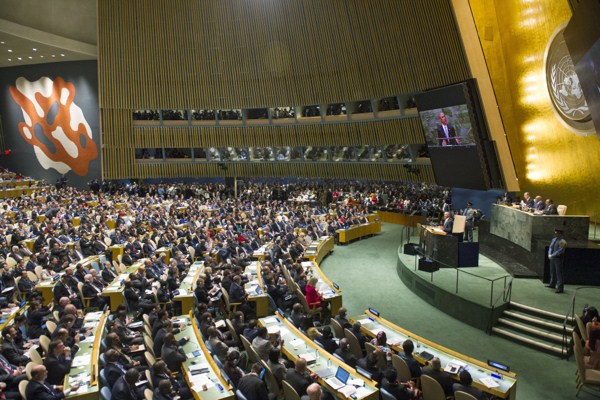Last week’s top-level session of the United Nations General Assembly in New York offered three basic lessons. The first is that the United States can still dominate the U.N. when it wants to. The second is that a clear majority of other countries’ leaders are quite relieved to follow an American lead. But the third is that the U.N. is only really still relevant in two—admittedly sensitive—regions: Africa and the Middle East.
America’s ability to direct U.N. affairs was in doubt a year ago, when the annual General Assembly jamboree was overshadowed by the Syrian chemical weapons crisis. While the U.S. and Russia agreed to dismantle President Bashar al-Assad’s chemical stockpile, Moscow was the obvious winner. President Barack Obama looked unnerved by the potential fallout of a military attack on Damascus and obliged to rely on Russian assistance to drive a compromise deal through the Security Council.
Obama and his advisers performed distinctly better in New York last week. The president chaired a special session of the Security Council on stemming the flow of foreign jihadists into Syria and Iraq, then headlined another discussion on the Ebola crisis. Vice President Joe Biden popped in last Friday to chair a meeting on reinforcing the U.N.’s faltering peace operations in trouble-spots such as South Sudan. Countries from Colombia to Mongolia promised new troops and equipment.

